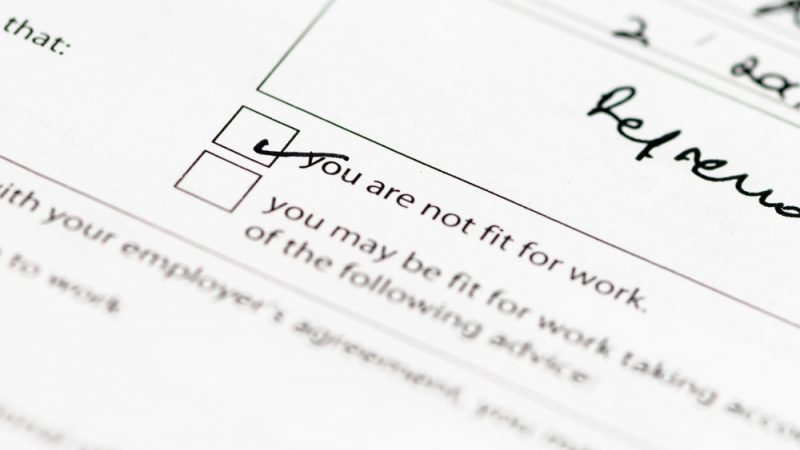UK
‘Sunak’s claim of a ‘sick note culture’ is immoral and deeply flawed’

The Prime Minister’s speech on welfare reform last Friday was not only high on rhetoric and low on evidence, it was grossly offensive to millions of sick and disabled people and to thousands of GPs up and down the country. It’s clear we’re in an election year.
The Prime Minister says he supports the ‘values’ of the welfare state and agrees that a ‘safety net’ should be there for those who ‘genuinely need it’. He refers to a ‘moral mission to reform the welfare system, giving everyone who can a chance to return to work, making it a fairer system ‘for the taxpayers who fund it’.
Let’s just unpick this. Up until the Covid pandemic, this Conservative Government decimated social security support for working-age people, cutting £14bn of support between 2010 and 2020, and plunging millions of working people on low incomes and their children into poverty. How is that supporting a safety net?
Rishi Sunak seems unabashed at his reference to a ‘moral mission’ and his sanctimony while he’s presiding over record levels of poverty, even deep poverty, and destitution. He talks about making the social security system fairer for taxpayers but fails to mention that the vast majority of social security claimants are also taxpayers.
The Prime Minister then goes on to conflate levels of economic inactivity with unemployment. People who are economically inactive are not unemployed; they are not looking for work for a variety of reasons including being retired or in full-time education. In fact, nearly 2 million economically inactive people would like to work!
‘Inactivity due to ill health can be linked to Tory failures’
What the Prime Minister failed to mention is that the increase in economic inactivity due to ill health can be attributed to the Conservative Government’s failures over the last 14 years. The statistics showed that the economic inactivity rate for those aged between 16 to 64 years is 22.2%, which although higher than a year ago, is in the context of an employment rate that still hasn’t returned to its pre-pandemic levels unlike other G7 countries.
But importantly, the record increase in economic inactivity due ill health is directly related to the increase in poverty and inequality across the country. All the evidence shows how our life expectancy is declining as well as how long we live in good health. And our NHS, barely recovering from the pandemic, is seeing record waiting times, with, for example approximately 2 million people waiting for an appointment for mental health services.
‘Talk of a sick note culture immoral and deeply flawed’
As a former Public Health consultant and academic myself I know the importance of good work to health but also of good health to work. But to talk about a ‘sick note culture’ is not only immoral but from a policy perspective, deeply flawed and counter-productive. When we know that many of the people the Prime Minister is referring to are experiencing mental health issues, referring to them in such a way is wholly wrong and frankly counterproductive.
This is not simply a hypothetical. In June 2018, bailiffs came to Errol Graham’s flat in Nottingham to evict him and discovered his body. Errol was penniless—he had no gas, no electricity and no water. His only food was two out-of-date cans of fish.
At his 2019 inquest, the coroner confirmed that Errol had weighed four and a half stone when he died, and that the cause of death was starvation. Errol suffered from severe mental ill health. He had been in receipt of employment and support allowance and housing benefit since 2014, until he missed a fitness for work assessment in 2017.
Philippa Day, a young mum, took her life in 2019 also when the DWP stopped her social security support. I could give so many other examples. But in truth we don’t know the full scale of the deaths of vulnerable claimants over the last 14 years, because the Government doesn’t investigate them all.
‘Victim blaming approach’
My fear is that with this victim blaming approach it will increase. If the Prime Minister’s rhetoric is backed up by greater sanctions, there will be more cases like Errol’s and Pip’s.
Labour’s plan involves providing genuine, tailored employment support people back into work. It includes tackling the NHS backlogs, funded by cracking down on tax avoidance. It also involves the devolution of employment policy to localities because communities, not Whitehall, know best about what support is needed. Likewise, with the ‘New Deal for Working People’ a huge new tranche of workers’ rights will make the workplace more attractive to everyone.
Sunak’s speech is yet another example of why the Tories cannot fix the economic inactivity crisis, because they are its principal cause.
No comments:
Post a Comment